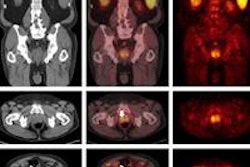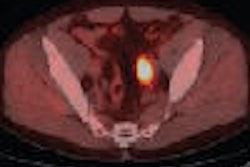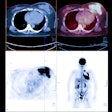Colorado researchers have developed a way to alter lipid metabolism in a cancer cell to make it use more FDG, potentially improving detection with PET.
The study, presented on Monday at the American Association for Cancer Research (AACR) meeting, used the drug etomoxir to block prostate cancer cells' ability to oxidize lipids. With the lipid energy source removed, cells switched to glucose metabolism, and both cells and mouse models roughly doubled their uptake of FDG.
For prostate cancer patients undergoing active surveillance, the metabolic technique could allow PET to be used to monitor disease progression instead of multiple biopsies, said Isabel Schlaepfer, PhD, an investigator at the University of Colorado Cancer Center.




















